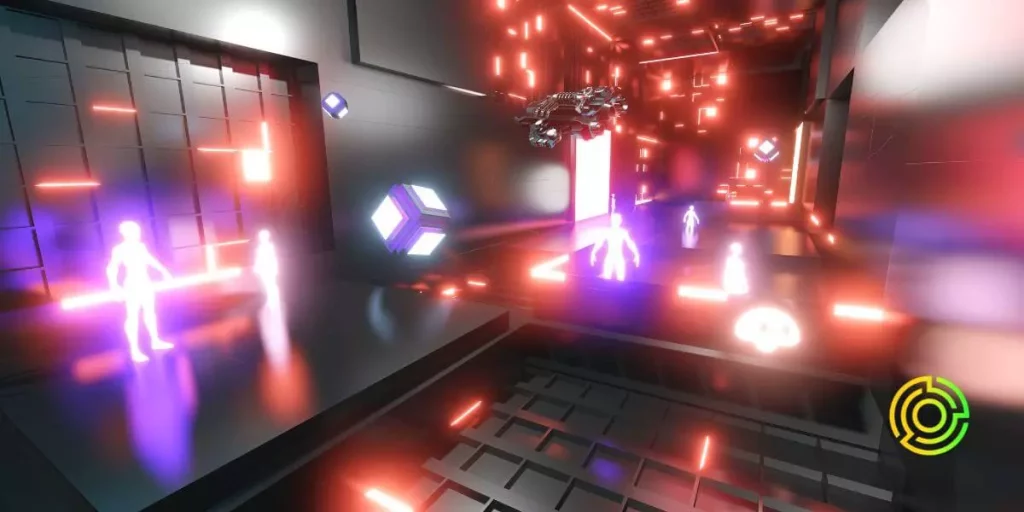Along with the advent of the metaverse and blockchain, the gaming industry is also evolving. The Metaverse platform combines social media, online gaming, virtual reality, augmented reality, and cryptocurrency to enable people to interact digitally.
Gaming corporations, IT giants, and venture capitalists have all invested in the metaverse. Decentraland was one of the first firms to try to develop a metaverse for multiplayer gaming.
The market worth of metaverse in gaming in 2021 was USD 36.93 billion and will be worth USD 70.17 billion by 2030, growing at a 37.85% CAGR during the forecast period.
Roblox is an online game platform and development system that lets users create their worlds and games within the larger metaverse. Gaming is currently the most interesting and dynamic entertainment genre across all platforms, and it will be crucial to the growth of metaverse platforms.
Gaming Prior Metaverse
Before the development of games powered by blockchain, players were fans of multiplayer games. However, blockchain is fundamentally changing the way that online games are played. Its potential applications in NFTs and cryptocurrencies surprise gamers with features like the ability to tokenize in-game assets and sell them for cryptocurrencies.
Depending on the regulations of the games, players can sell their assets or keep them till they receive rewards from the platform. The people who have complimented the popularity of NFT games worldwide are those that prefer real money gaming and cryptocurrency places.
Gaming in the Metaverse
The development of the gaming business recently led to the creation of metaverse games. Players are accessing Web3-based games to enjoy next-generation gaming, and businesses are now prioritizing decentralized projects because the future will be decentralized. In-game ownership and game economies are crucial components in developing metaverse and Web3-based games.
Combining features from Fortnite and Battle Royale while developing a sustainable, controllable, and long-term economic model within play-to-earn games while focusing on the actual gameplay experience remains a foundation to build on.
Studios like G4AL are bridging the gap between free-to-play and pay-to-play with their game pass features, allowing gamers to earn when they want. Gamers can cooperate, invite friends, and connect within the Web3 economies or the so-called metaverse to play games together.
Because of the interoperability of these platforms on the metaverse, gamers can easily transport their virtual products between places.
Technologies Enhancing Gaming in the Metaverse
Because of recent metaverse breakthroughs, video game creators have been compelled to embrace appropriate game formats.
They use cutting-edge technologies such as blockchain and AI to build more immersive games. The following are some of the fundamental resources needed to develop a game metaverse:
Virtual reality and augmented reality systems
Augmented reality (AR) and virtual reality (VR), which enable a fully realistic and exhilarating 3D experience, are the major technologies driving the metaverse development.
AR transforms the real world into a virtual one by utilizing visual components and characters. Since the system works with smartphones and other digital gadgets, users may enjoy an immersive experience wherever they are.
Cryptocurrency and the blockchain
Blockchain technology makes it easier to create decentralized metaverses. It is now possible to digitally prove ownership, transfer value, accumulate digital assets, and have interoperability. Cryptocurrencies can be used to conduct commerce in the immersive 3D metaverse since they are based on real-world money.
Internet-of-Things (IoT) Networking
The IoT enables the metaverse to gather data from the physical world and utilize it. It connects the metaverse to numerous physical devices, allowing virtual items to respond to environmental elements like temperature and humidity.
3D model reconstruction
Despite widespread use of 3D technology, the COVID-19 pandemic has significantly increased the frequency of 3D reconstruction. Virtual tours are now widely used by real estate firms to better showcase their properties to potential purchasers. The metaverse has been using 3D recreation to improve the experience of other existing technologies.
Conclusion
The metaverse is still in its early stage, and many companies have already created next-generation gaming systems. The Metaverse is facilitating the evolution of gaming gamers.
They can enter the virtual world of gaming, interact with the environment, and feel what it’s like to be in the game rather than just watching it on a screen.
Follow us on our social networks and keep up to date with everything that happens in the Metaverse!
Twitter Linkedin Facebook Telegram Instagram Google News
